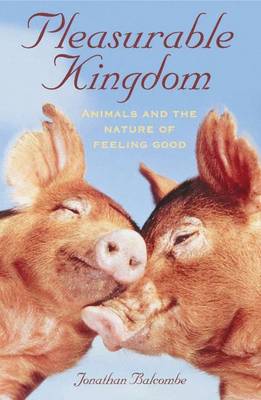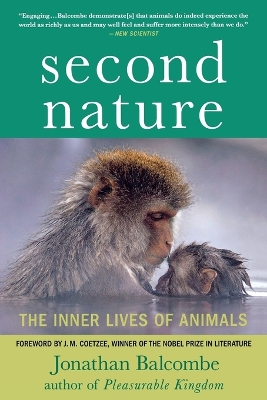MacSci
2 total works
Pleasurable Kingdom marshalls the latest evidence that animals, like humans, enjoy themselves. It debunks the popular perception that life for most is a continuous, grim struggle for survival. Instead it suggests that creatures from birds to bats to baboons may feel good thanks to play, sex, touch, food, anticipation, comfort, aesthetics and more. Combining rigorous evidence, elegant argument and amusing anecdote, leading animal behaviour researcher Dr Jonathan Balcombe proposes that evolution favours sensory rewards because they drive living things to stay alive and reproduce. Animal pain and stress, once controversial, are now acknowledged by legislation in many countries. Likewise the possibility of positive feelings in creatures other than humans has important ramifications for science and society and is thus ripe for informed debate, Balcombe concludes.
Do baboons have a sense of right and wrong? Can cats and dogs have their feelings hurt? Animal behavior expert Jonathan Balcombe makes the case that animals, once viewed only as mindless automatons, actually have rich sensory experiences and emotional complexity. Drawing on new research, observational studies, and personal anecdotes to reveal the full spectrum of animal experience, Balcombe paints a new picture of the inner lives of animals that diverges from the "fight or die" image often presented in the popular media. He challenges traditional views of animals and makes the case for why the human-animal relationship needs a complete overhaul. Did you know that dogs recognize unfairness and that rats practice random acts of kindness? Did you know that chimpanzees can trounce humans in short-term memory games? Or that fish distinguish good guys from cheaters, and that birds are susceptible to mood swings such as depression and optimism? With vivid stories and entertaining anecdotes, Balcombe gives the human pedestal a strong shake while opening the door into the inner lives of the animals themselves.

